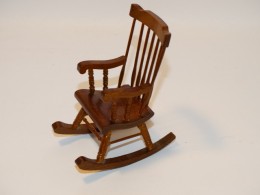
The battle doesn’t end when an abuse victim escapes
The following is based on the personal observations of a survivor and is not meant in any way to replace the guidance and support of a professional therapist or police.
If you feel you are in danger or if you are questioning if you are in danger, contact your local Battered Women’s Shelter immediately and get support, help, and advice. No matter what you have been told, there are people who will help, there are people who care.
Several years ago, there was the local tragic true story of a woman who had escaped from her controller. She had a new life, her confidence was growing. Then one day she unexpectedly returned to her abuser. Her last moments alive were spent running for her life across a field, screaming for help as her abuser chased her down and shot her to death. Her parents and friends were left to mourn and to question why their daughter had returned to her abuser.
Unless you have been in the situation, it is very hard and even impossible to understand why someone returns to an abusive relationship. Why, after working so hard to escape, will someone so willingly return to such a dangerous situation?
Survivors return to abusers because they believe it is possible for an abuser to change. As they begin to heal from the abuse, they begin to wonder if it really was so bad. This is where having an abuse notebook is important to have. During moments of weakness, a survivor can read the notebook and be forced to remember yes, it was that bad and worse.
The hope that an abuser will change is pointless. Abusers don’t change. Only victims change. Victims can become survivors. Abusers remain abusers. Abusers may improve his/her public persona, but behind the mask, he/she continues to abuse.
Abusers gain pleasure from causing others pain. Why would an abuser change? He/she inflicts pain, whether physical or mental, for three reasons. First, he/she gets pleasure from causing pain for others. Second, hurting others diminishes or masks his/her own pain, which is where the urge to abuse comes from in the first place. Third, inflicting pain gives an abuser a sense of power and control.
Abusers get a very large boost to their feelings of control when a victim returns. A victim’s return further underlines for the abuser that he/she is in the right. The abuser uses the argument that if things were so bad, why did the victim return? By returning, the victim sends the message that he/she agrees that he/she deserves whatever the abuser dishes out and enjoys it.
The following is a list of tricks used time and again by controllers to regain control.
While the script is very effective, the pattern does have a major flaw. Once the pattern is seen and the victim can predict the next step, the script becomes ineffective and the power moves into the hands of the victim, who can now become a survivor.
Stages of a Controller Trying to Regain Control (in order)
Use of guilt trips, crises—anything to regain control of the situation/person. The abuser needs to get the victim’s attention quickly and re-establish control. An abuser will misrepresent the level of disability in order to be cared for and pitied.
If the guilt trips and crises creation fails, then anger, lashing out, accusations, and guilt trips increase.
Next is bargaining and pleading, including a temporary show of returning to things “the way they used to be” (which further proves the abuser is fully aware of how he/she is being abusive since the abuse is stopped in order to lull a victim back into compliance). All stops will be pulled to convince the victim to stay or return.
At this point, it is ultimately important to remember what the circumstances were, what made the victim unhappy, what was lacking. It is still the same, it is temporarily being glossed over.
Every effort will be extended to convince the victim that all is better, but it is temporary and as soon as a controller believes he/she is in control and has the victim back in line, the façade’ is dropped and the abuse/bad behavior doubles.
The victim’s self-esteem drops even lower because added to everything else is the victim’s knowledge that he/she allowed himself/herself to be fooled a second time.
A victim should ask himself/herself: What has happened that would cause a change? Therapy? Medications? What makes the supposed change believable?
A controller wants to keep the victim, not because the controller cares about the victim, but because he/she can’t stand losing control. He/she also doesn’t want to have to train a new enabler. Despite claiming that he/she will be alone “forever,” controllers always find a new enabler/victim. Claiming he/she will be alone forever is another guilt trip.
Controllers have anger issues and often are anger addicts. An anger addict enjoys causing upset – usually while making it appear he/she has nothing to do with causing the situation. An anger addict gets a “high” from the drama that results from the pain and upset of others.
Finally, if all else fails, the controller will make every effort to diminish the victim and try to make the victim doubt any happiness the victim may have found. A controller will ridicule and try to plant seeds of doubt about the feelings of anyone the victim says loves him/her.
Controllers will say things like: “No one will ever love you” to get a victim to reply, “Someone does love me.” This is the opening the controller is looking for—he/she will pound the victim with questions, exhaust with accusations, and finally try everything he/she can to make the victim doubt his/her feelings and those of the one who loves the victim.
The key to defeating this: Say nothing, volunteer nothing. If a response is felt to be absolutely necessary then “I can see why you would feel that way,” is a good comeback. Keep repeating that and NOTHING else.
It is the controller’s desire to maintain control – it is all that is important to him/her. He/she does NOT care about the enabler/victim. The enabler/victim is an object to him/her, something to use.
What the controller can not do:
- He/she can’t make the victim love him/her.
- He/she can’t take away the love someone else has for the victim.
- He/she can’t give anything worth keeping in return for the love and devotion the victim has given.
- He/she can not take away free will.
- A controller can NOT stop a brain from thinking or a heart from loving someone else.
Copyright 2017 A. Barnes | All Rights Reserved.



